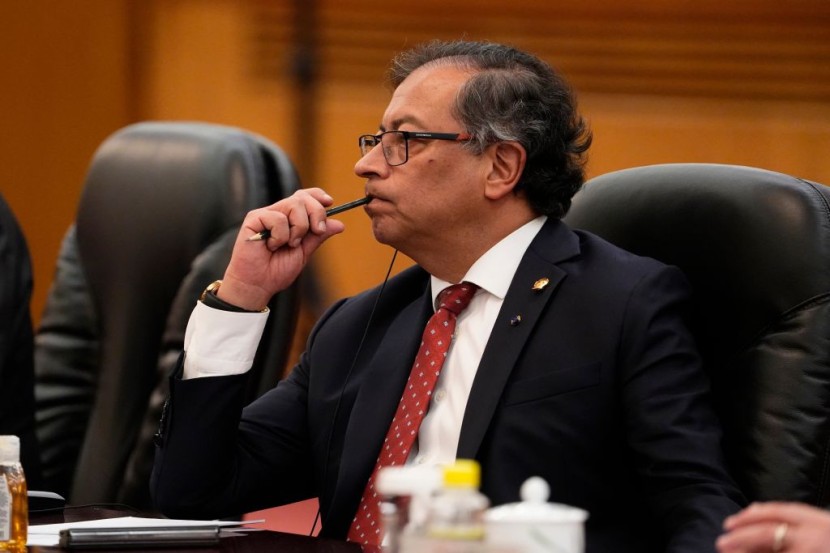Colombia President Gustavo Petro is facing mounting pressure after opposition politicians won regional elections, veering the South American country to the right.
The 63-year-old president was elected in August last year in which he became the first leftist leader in the history of the country. He is currently suffering with low poll ratings and the outcome of the elections on Sunday is expected to influence the 2026 presidential election.
Colombia's Regional Elections

The ruling coalition's candidate in the capital of Bogota, Gustavo Bolivar, came in third place for mayor, which is one of the top government positions after the presidency. The lawmaker called the result a "punishment vote" over disappointment with Petro's government.
The director of Colombia Risk Analysis, political analyst Sergio Guzman said that Bolivar's loss sends a very strong message. This comes in spite of insistence from Petro's government that the vote is not a reflection on the president himself.
The New Liberalism Party's Carlos Fernando Galan won the Bogota mayoral election with nearly half of the total votes. Petro congratulated the winning candidates of the regional elections and said that he was planning on working together with them moving forward, as per Reuters.
In a televised address, the Colombian president said that they would work to articulate their campaign proposals so that they can unitedly build a country that fights corruption, injustice, and a climate change crisis. Petro added that it was their duty as rulers to respect the voice of the people of the country.
The majority of the candidates that won the regional elections were backed by coalitions involving several parties or by signatures from citizens which allowed them to rule as independents. Colombian voters in the two biggest cities, Medellin and Cali, elected as mayor politicians who are strong critics of the president.
Additionally, many of the candidates who won had previously vowed to improve security and promote projects that would create jobs with support from the private sector. There are roughly 39 million Colombians who were eligible to vote in the recent elections and the ballots included more than 125,000 candidates.
Read Also: G7 Countries Urge China To Lift Japanese Food Restrictions Amid Global Tensions
Effects on the Colombian Peso
Some analysts also argued that the outcome of the vote on Sunday threatens the president's efforts to get Congress to make significant changes to the country's health system and its labor laws, according to the Associated Press.
A fellow for Latin American Studies at the Council on Foreign Relations, Will Freeman, said that the development sends a message to some lawmakers who were on the fence about returning to the government. He added that the results of the vote suggest that the winds are changing in Colombia.
Following the defeat of Petro's allies, the Colombia peso and bonds gained, marking another blow to the president's reform agenda. The currency strengthened as much as 2.4% versus the dollar on Monday to 4,055 pesos. This is the strongest it has been in a month and comes as the dollar debt rose across the maturity curve.
The managing director for Latin America fixed income at Santander, Siobhan Morden said that the situation is expected to further weaken the political capital of the Petro administration. He added that markets would most likely interpret it as credit positive on a weaker reform agenda, said Bloomberg.
Related Article : Philippines Holds 'Generally Peaceful' Local Community Elections
© 2025 HNGN, All rights reserved. Do not reproduce without permission.








